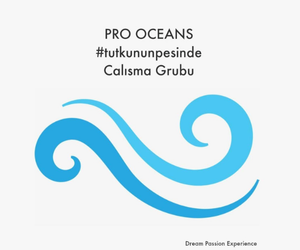[embedyt] https://www.youtube.com/watch?v=Wlc6zq3O5Bo[/embedyt]
The US Coast Guard is one of the six armed forces of the United States, providing maritime security, law enforcement, and search and rescue services. It is the largest coast guard in the world, rivaling the capabilities and size of most navies, and is available to keep boating safe.
Operating under the US Department of Homeland Security during peacetime, Secretary of Homeland Security Kristi Noem announced Force Design 2028 (FD2028) during the Coast Guard Academy commencement ceremony on May 21, 2025.
Outlining a vision for the Coast Guard’s future, this initiative provides a blueprint to transform the Coast Guard into a stronger, more ready and capable fighting force.
“Now, more than ever, the American people need a strong and capable Coast Guard,” said Noem. “The Coast Guard must not simply evolve. It must revolutionize how it functions and operates to ensure decisive advantage over adversaries. This requires a fundamental change. Force Design 2028 is the bold blueprint needed to drive urgent action and win.”
Noem also announced President Donald J. Trump’s nomination of Adm. Kevin E. Lunday to serve as the 28th commandant of the Coast Guard. Lunday will continue serving as acting commandant until confirmed by the U.S. Senate.
“Now is the time for fundamental change,” said Lunday. “Secretary Noem has said that we must reinvigorate the Coast Guard or risk strategic failure. I am honored to lead our Coast Guard men and women in this historic effort to renew the service for the future.”
FD2028 outlines several key initiatives and campaign areas:
• Establish a service secretary: This initiative establishes a legislatively authorized, secretary of the Coast Guard nominated by the president and confirmed by the Senate. This secretary would report directly to the secretary of homeland security and provide civilian leadership, oversight, accountability and advocacy, with authorities comparable to secretaries of other military services.
• People: Recognizing that the workforce is at the core of the Service, FD2028 seeks to grow the Coast Guard’s military workforce by at least 15,000 members by the end of fiscal year 2028 to restore readiness and support a growing fleet and new capabilities. Initiatives include transforming the workforce by aligning with the president’s executive order on “Restoring America’s Fighting Force” and instituting a physical fitness test, modernizing enlisted accessions and investing in recruiting incentives, investing in officer leader growth through various programs, revitalizing the Coast Guard Reserve with a focus on mobilization readiness and streamlining policies and processes for the civilian workforce.
• Organizational design: FD2028 will reform the Coast Guard’s organizational structure to become more effective, enabling a leaner, more agile and strategically focused Headquarters by streamlining processes and eliminating redundancies. Key initiatives include designing the future force to win by embracing strategic planning and establishing a futures development and integration function, creating program executive offices for a systems-focused approach to acquisitions and sustainment, establishing a Deployable Specialized Forces command for improved integration and interoperability, strengthening Coast Guard Cyber Command to address cyber and space threats, transferring operational and service-delivery functions out of Headquarters.
• Technology: FD2028 will position the Coast Guard to become a leader in the adoption and use of advanced technology, human-machine teaming and data. Initiatives include creating Coastal Sentinel, a next-generation integrated sensor network leveraging artificial intelligence for unprecedented threat identification, supporting a revitalized U.S. maritime industry by replacing antiquated systems for vessel registration and mariner credentials, supporting workforce growth with a modern human resources information technology system incorporating artificial intelligence, delivering an improved logistics system for conditions-based maintenance, and establishing a rapid response prototype team to quickly identify, adopt and deliver advanced technology capabilities.
• Contracting and acquisitions (C&A): This campaign aims to streamline C&A processes to better respond to emerging threats, strengthen industry coordination and prioritize speed and flexibility. The service will reform acquisition practices to deliver needed capabilities—including icebreakers and unmanned systems—while managing risk. Planned changes include establishing a disciplined requirements process, assigning senior acquisition authority to the secretary of the Coast Guard, creating a senior procurement executive role, outsourcing procurement activities for effectiveness and designating single points of accountability to empower program managers.
Within 30 days, the commandant will deliver an execution plan for FD2028, followed by the commencement of a force posture and operational concepts campaign within 150 days, and the first of semiannual updates within 180 days.
“Force Design 2028 is the Coast Guard’s way forward,” said Lunday. “Under the leadership of Secretary Noem, we are moving out today to aggressively implement this transformational change.”
For the FD 2028 executive report, click here.
For over 234 years, the American people have depended on its missions and the unique value the Coast Guard provides to assure economic prosperity and national security. With its ships, aircraft, boats, and nearly 55,000 military members and civilian employees, every day the Coast Guard:
• Controls the U.S. border and maritime approaches
• Protects America’s ports and waterways
• Conducts military operations to defend the Nation
• Saves lives
• Enforces federal law
• Leads in national emergencies
• Maintains the flow of maritime commerce to ensure America’s economic prosperity
SCUTTLEBUTT News Link !
DemirHindiSG 21 Mayıs 2025-18:39




![Fundamental change for Coast Guard [embedyt] https://www.youtube.com/watch?v=Wlc6zq3O5Bo[/embedyt] The US Coast Guard is one of the](https://www.sualtigazetesi.com/wp-content/uploads/Coast-Guard-Academy-Class-of-2025-Commencement-1280x720-1.jpg)
